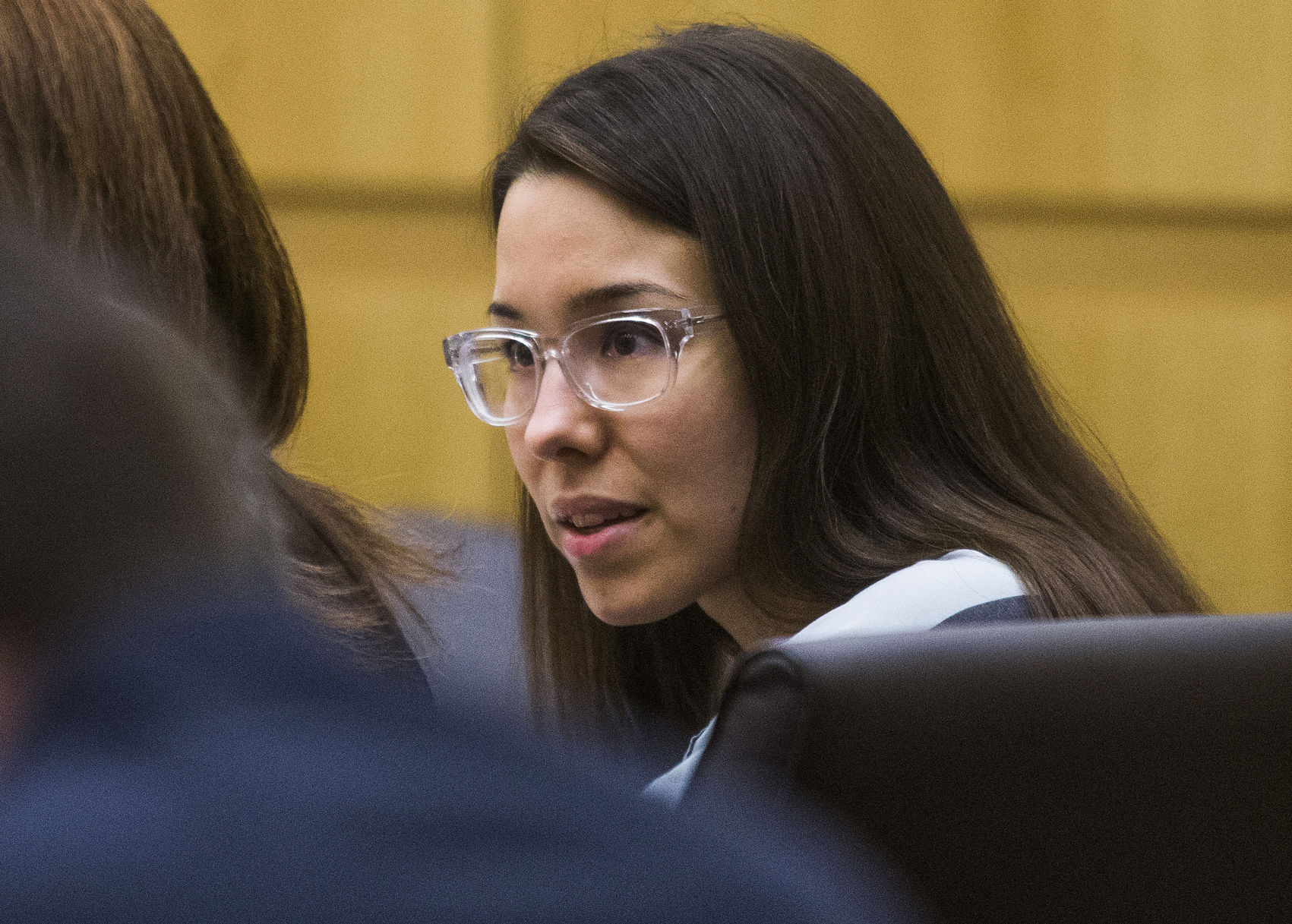PHOENIX (AP) — Jodi Arias’ case remains a headache for Arizona’s court system long after her murder trial had spectators lining up for seats, attorneys squabbling in court and two different juries deadlocking on whether she deserved the death penalty.
PHOENIX (AP) — Jodi Arias’ case remains a headache for Arizona’s court system long after her murder trial had spectators lining up for seats, attorneys squabbling in court and two different juries deadlocking on whether she deserved the death penalty.
Problems compiling trial transcripts have delayed Arias’ appeal of her first-degree murder conviction by about a year.
Lawyers use trial transcripts to identify and document grounds for appeals. In Arias’ case, the state Court of Appeals had to repeatedly prod some of the trial’s 22 court reporters to finish transcripts, and at one point even ordered that dozens of transcripts be destroyed and redone because of errors and omissions.
The reporter responsible for most of the transcripts told the court his production was hindered by a computer malfunction, his own cancer treatment and the amount of work involved in Arias’ case and others. Other reporters cited workload issues.
It wasn’t until April 24, nearly two years after the appeals process formally started, that the Court of Appeals declared the record complete, with nearly 25,000 pages of transcripts, over 950 exhibits and 21 written motions for dismissal or mistrial.
More than three months later, the court finally set deadlines in 2018 for the defense and prosecution to file legal briefs. A three-judge panel then will consider the appeal, perhaps after hearing oral arguments.
Court of Appeals Presiding Judge Samuel Thumma referred questions to Court Clerk Amy Wood. She said the delays in Arias’ appellate case were unusual and a concern.
“Any time we don’t have a complete record, it is a concern to us because it keeps us from continuing to process the case,” Wood said.
Arias is confined at the Perryville state prison near Phoenix for killing of on-again, off-again boyfriend Travis Alexander in 2008.
Lead defense attorney Peg Green didn’t respond to emailed and telephoned requests for comment on the status of Arias’ appeal and the effect of the delays.
However, Green and another defense lawyer – both appointed for Arias’ appeal – said in an Aug. 10 court filing that the transcripts were particularly important in Arias’ convoluted case because they had difficulty sorting out what happened when.
Some possible appeal issues spanned five or six years of wrangling before and during the 125-day, televised trial, the defense lawyers wrote.” The pattern of this case reveals recurring issues. Hearings were often held in a piecemeal fashion over the course of weeks, months and sometimes years.”
For example, one issue surfaced in 2009 and lingered until at least Feb. 5, 2015, the lawyers wrote.
Another complication is that Arias’ trial judge held frequent, lengthy discussions with lawyers out of earshot of jurors and the public. The court reporters documented those talks, but the large amount of material involved “bogs down the process of reviewing the record,” the defense lawyers said.
Court rules normally require that a defendant’s opening brief be filed within 40 days of the completion of the record, but Arias’ lawyers requested and got extra time.
Arias acknowledged killing Alexander but claimed it was self-defense. Prosecutors said Arias killed Alexander in a jealous rage because he wanted to end their tawdry relationship.
The guilt phase of Arias’ trial ended in 2013 with jurors convicting her but deadlocking on punishment. A second sentencing trial began in late 2014 and stretched into early 2015, also resulting in a jury deadlock. That required the judge to impose a prison sentence of natural life.


